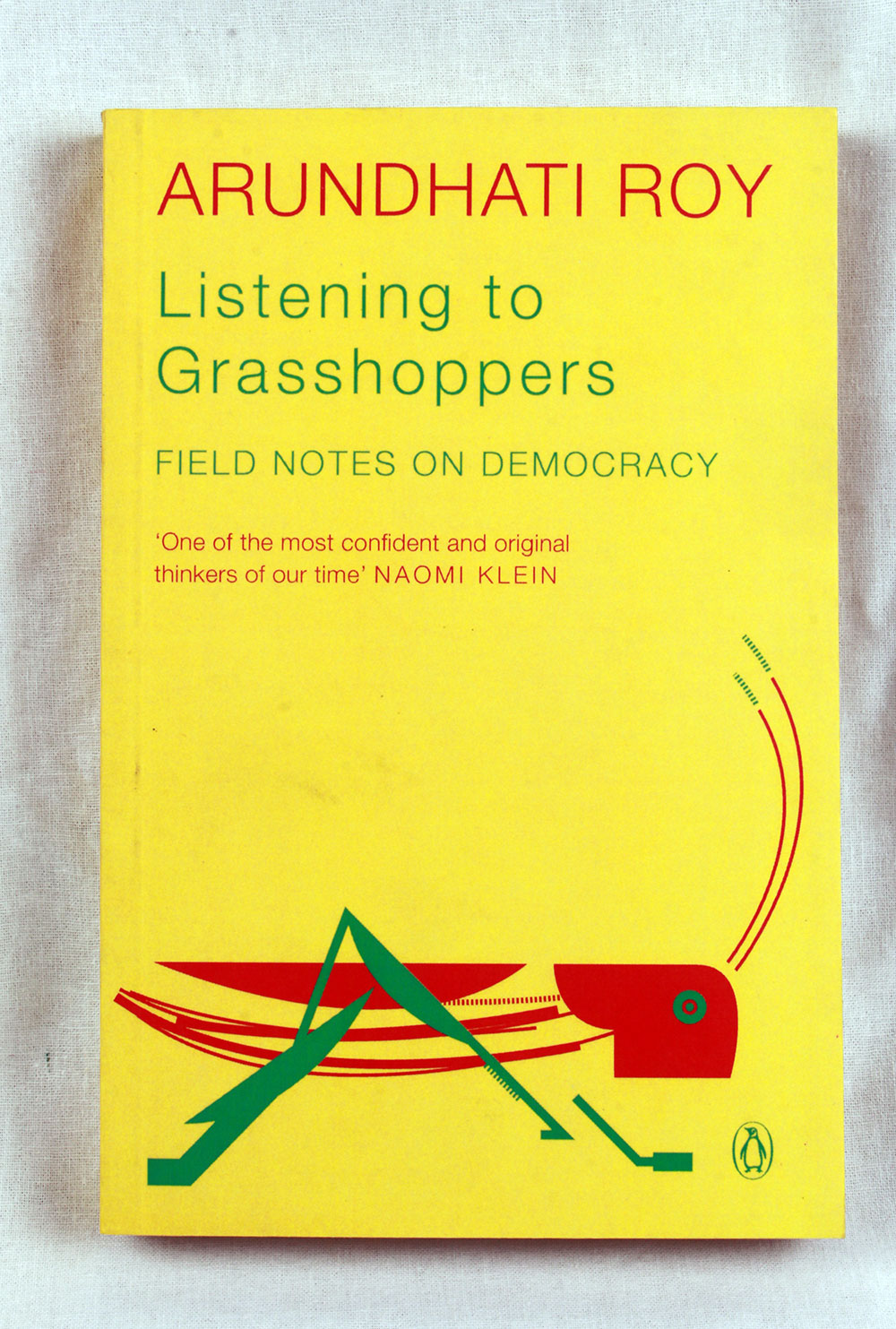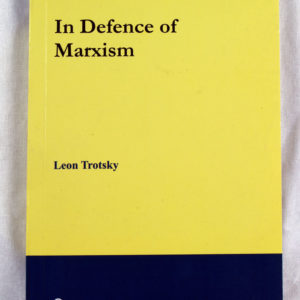Listening to Grasshoppers: Field Notes on Democracy | Arundhati Roy
₨ 400.00
Listening to Grasshoppers: Field Notes on Democracy (2009) is a collection of essays written by Booker Prize winner Arundhati Roy. Written between 2002 and 2008, the essays have been published in various left-leaning newspapers and magazines in India. The first edition of the book consists of eleven essays with an introduction by Roy was published by Hamish Hamilton in India.
Listening to Grasshoppers: Field Notes on Democracy (2009) is a collection of essays written by Booker Prize winner Arundhati Roy. Written between 2002 and 2008, the essays have been published in various left-leaning newspapers and magazines in India. The first edition of the book consists of eleven essays with an introduction by Roy was published by Hamish Hamilton in India.
The official introduction to the book in the publisher’s website is as below:
‘What happens once democracy has been used up? When it has been hollowed out and emptied of meaning?’
Combining brilliant political insight and razor-sharp prose, Listening to Grasshoppers is the essential new book from Arundhati Roy. In these essays, she takes a hard look at the underbelly of the world’s largest democracy, and shows how the journey that Hindu nationalism and neo-liberal economic reforms began together in the early 1990s is unraveling in dangerous ways.
Beginning with the state-backed killing of Muslims in Gujarat in 2002, she writes about how ‘progress’ and genocide have historically gone hand in hand; about the murky investigations into the 2001 attack on the Indian Parliament; about the dangers of an increasingly powerful and entirely unaccountable judiciary; and about the collusion between large corporations, the government and the mainstream media.
The collection ends with an account of the August 2008 uprising in Kashmir and an analysis of the November 2008 attacks on Mumbai. ‘The Briefing’, included as an appendix, is a fictional text that brings together many of the issues central to the collection.
Related products
Ed. Salim Yusufji With an introduction by Bama
This book is an attempt at intimacy with B.R. Ambedkar in his hours away from history and headlines. The aim here is to recover the ephemera that attended Ambedkar’s life and died with him—his pleasure in his library and book-collecting, his vein of gruff humour, the sensation of seeing him in the flesh for the first time, or of stepping out of a summer storm into his house and hearing him at practice on his violin. Here, we have his attendants, admirers and companions speak of Ambedkar’s love of the sherwani, kurta, lungi, dhoti, and even his sudden paean to elasticated underpants. We meet Ambedkar the lover of dogs and outsize fountain pens, proponent of sex education and contraception, anti-prohibitionist teetotaler and occasional cook.
The fragments that make up this volume enable the recovery of his many facets—a rewarding biographical quest.
This book is correctly regarded as one of Trotsky’s finest classics. It is a product of a sharp polemic within the American trotskyist movement during the period 1939-40. This was a dispute which touched on the very fundamentals of Marxism. It was for this reason that Trotsky himself participated in this struggle in the form of a series of articles and letters that are brought together in this volume.
Publisher : Aakar Publications
The Motorcycle Diaries is a story which revolves around 2 men who embark on a road journey on a 1939 Norton 500cc cylinder motorcycle from Buenos Aires. They are out to discover and explore South America. This book had been written 8 years prior to the Cuban Revolution. The person who wrote the memoirs of this journey was one of those 2 bikers, Ernesto Guevara. He focused on the injustices that were prevalent at that time in South America.
with an Introduction,‘The Doctor and the Saint’ by Arundhati Roy
Annihilation of Caste ‘posseses a generic openness to the wounds and decisions of existence which can breach the prisons of the world as no amount of scholarship can’—Biblio
Read a comprehensive interview with Arundhati Roy in Outlook, where she says, ‘Caste is at the heart of the rot in our society. Quite apart from what it has done to the subordinated castes, it has corroded the moral core of the privileged castes. We need to take Ambedkar seriously.’







Reviews
There are no reviews yet.